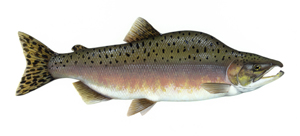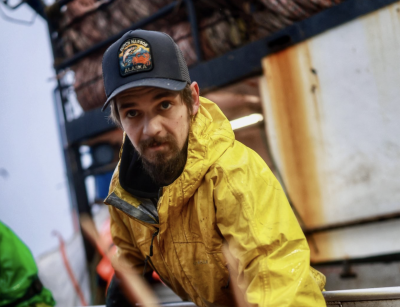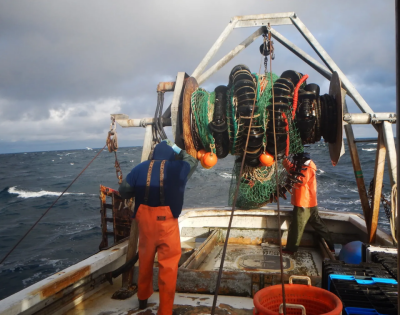Alaska news is all atwitter today over a state fair pumpkin disqualification that edged out what would have been a record-breaking entry somewhere between 1,290 and 1,420 pounds. That's a lot of pumpkin pie. Record holder J.D. Megchelsen's specimen was brought down by a thumb-sized hole that violated the fair's requirement for "structurally sound produce." The win went to Dale Marshall of Anchorage with a 1,182-pounder.
Not to be outdone by prize-winning produce, Southeast salmon fleets are causing a stir with their own Alaska whopper. The region's gillnetters, trollers and seiners are looking at a new record for pink salmon landings. They've caught 80 million pinks so far, and the season still has a few openings left. The previous record was 77.8 million, set in 1999. The seine fleet was fishing on limits for the first time in years because even the area's state-of-the-art processors could not handle the rush. The big pink numbers could even push the fleet over the record for all five species, which is just shy of 98 million.
I have to wonder what effect these numbers will have on the doomsday predictions about the effects of the Fukushima nuclear spill. Certainly, it's not good to wonder how much contamination there really is coming from the Daiichi reactor. But the fact is, when it comes to contamination, no seafood eaten in this country is tested more than our own domestic supply. And there is little doubt that scientists across the country are dedicated to studying the effects of the leak on anadromous fish. If you want to feel secure in your seafood source, eat American.
In yet more big news yesterday from the Last Frontier, Environmental Protection Agency chief Gina McCarthy visited the state to talk about climate change and embark on a fact-finding mission for the proposed Pebble Mine site in Bristol Bay.
The EPA's final report on the mine is expected this fall, and the Pebble Partnership, the mine's parent company, is expected to release a mine plan soon. The biggest criticism among proponents of the mine is that the EPA launched an investigation of Bristol Bay under the Clean Water Act before a mine plan was made public.
Reportedly, Pebble Partnership CEO John Shively was pleased to see a representative of EPA touch down on the site. Though it's hard to imagine that a visit to Bristol Bay could change anyone's mind about preserving its natural beauty and productivity as the source of the world's largest wild salmon run.
In Alaska, you go big or go home. In the case of Pebble Mine, let's hope it's both.
Photo: Pink (humpy) salmon, U.S. Fish & Wildlife







